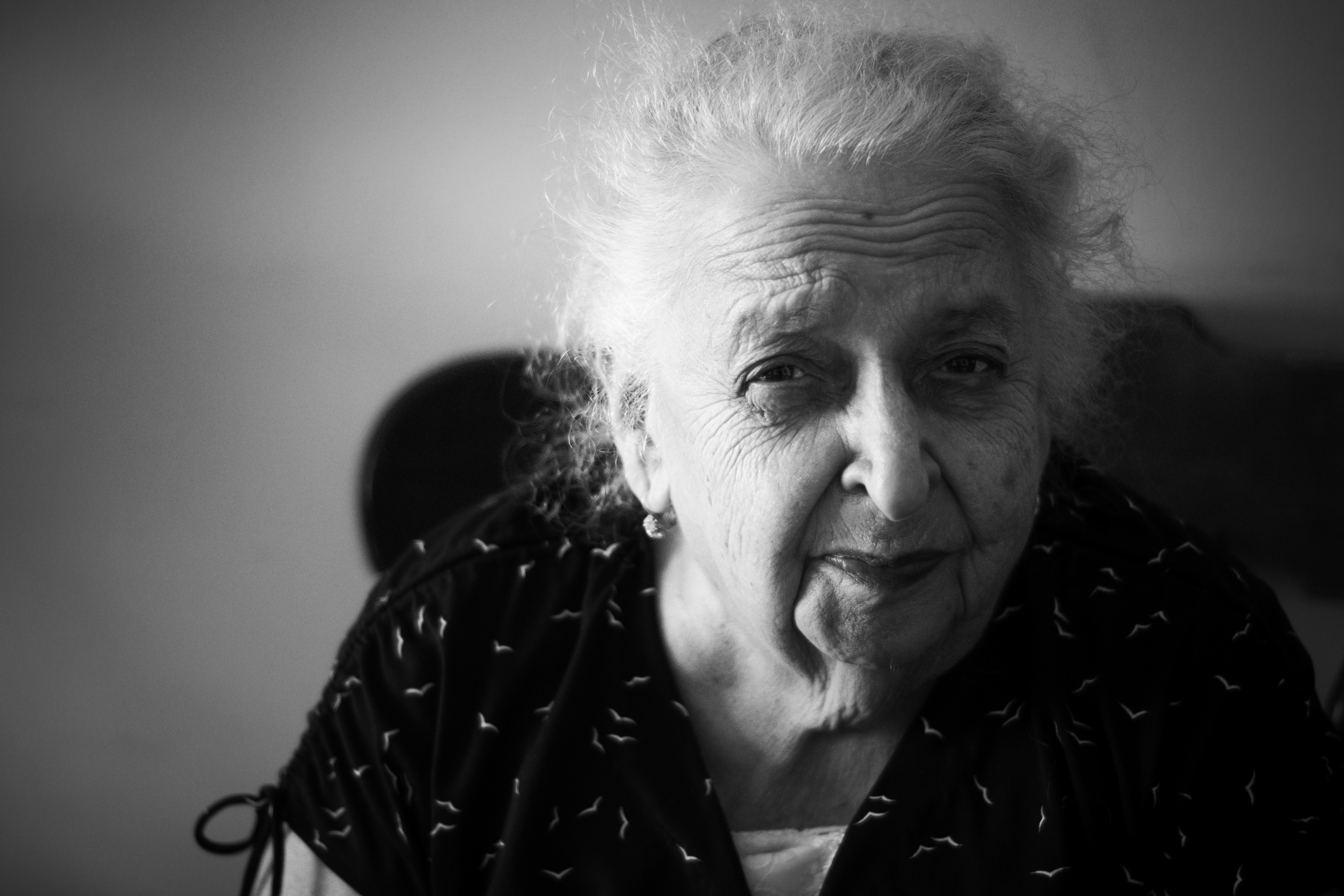My mother was a little obsessed about my education. Whenever she came across a subject that was good for me to study, that is to say a subject I was still interested in... I didn't want to study music, for example, I avoided it... but the rest - the rest she tried to give me. I was good with languages... Because, as I say, my mother made available to me a great many resources. I was still in elementary school, in 2nd, 3rd grade, but already at that time I had a German instructor, a real, native German, a qualified teacher, a
serious man. He formed a group of students and we all studied together by conversing with each other.
I remember one of the students was Zika Shmidt (the son of Otto Yul’evich Shmidt). And so we, all of
us, studied together, socialized and conversed. Those endless conversations in German - we toured our
Russian museums and spoke German. And that’s why it all turned out the way it did.
I began my studies at the Foreign Language Institute, and I attended the Institute for three months. At that point, I was made to take Federal Exams. By the way, while I was at the Institute, my only subject of study was Military Interpretation. I knew everything else on par with the native German speakers. The Germans I was in contact with at the time were from Austria. That’s why my German is close to the Austrian German, however, during my years in the profession I picked up all dialects. So I got my diploma and was sent to work right away. The work was highly classified, and I was restricted in my movements, I didn't go anywhere. I really knew the language, you see? I worked as a military interpreter for the entire duration of the war. The work was not dull, nor was it mechanical, it was very very difficult work. Because you worked with people, with all sorts of people. I interpreted the words of many war criminals. I worked with Paulyus [German military officer, Field Marshal from 1943, Commander of the 6th Army which surrendered at Stalingrad.Author of Plan Barbarossa]. He was assigned other interpreters but they were unable to translate what he said... He did not particularly try to be understood. So it was extremely difficult to work with him. But I spoke with him constantly. Of course, I did not disclose my thoughts about him or the Germans in general, this was not part of my job. My job was to provide honest interpretation. You see, when he spoke I understood him perfectly. He was a very educated man. He spoke High German, not a dialect, so I had no problem translating what he said. Some things I could not interpret accurately, some military terms and the like, so I had to explain them indirectly. He was interrogated by high-ranking officials, by all sorts of military specialists. Every time he was summoned, sometimes several times a day, I was called to interpret. He was given clues, of course, as to what he should do, and he quietly did what he was told. It was extremely difficult for me but I continued to work.
When German prisoners were relocated, the German officers were led on foot through the streets of
Moscow and I walked with them. We walked and shook with fear because at every sidewalk there was
a huge crowd of wounded soldiers, with or without bandages, of military men, and these men threw
anything they could find - crutches or anything else - at the prisoners. And we [the interpreters - E.W]
walked on the side, between the prisoners and the crowds. We walked and hoped we would make it in
one piece. We were young girls still, just very young girls.
I was at home during Victory Day because I was “a little pregnant”: my son was born on May 14,
1945 and Victory Day was on May 9, 1945. I remember lying down on the window sill and weeping.
Because everyone was dancing below, there was so much joy, and I was looking down through my
window on the 5th floor, unable to join. I simply was not able to. But I remember that day very clearly.
I delivered my son on May 14, 1945 and that date marked the end of my work as an interpreter. I did not
go back any more, thank God. I returned to the Foreign Language Institute, took the additional exams
required for Pedagogy Faculty, got my diploma and became a teacher. At the end of my career I was an
Assistant Principal at a school.
Translation from Russian by Ella Yulis

